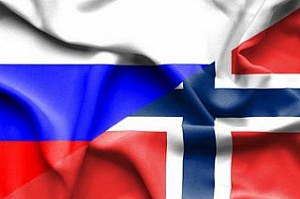The University of Tromsø and TSU, with the support of Saint Petersburg University and the University of Oslo, won the competition organized by the Norwegian Centre for International Cooperation in Education (SIU). The partner universities will develop new training programs in biophotonics, a high-tech area that opens up broad opportunities in optical studies of biological objects and non-invasive diagnosis of various diseases. Undergraduates and post-graduate students from various countries will train with this interdisciplinary project.
– The use of photonics for solving scientific and applied biomedical problems is a modern trend, says Yury Kistenev, director of the StrAU Institute of Biomedicine. The whole world is working in this area because biophotonics helps to bring medical care to a qualitatively new level. For example, inventions in this area make it possible to distinguish pathology and healthy tissues using photons of light. This saves the patient from traumatic procedures to take material for analysis.
TSU has conducted research in biophotonics for many years. In 2017, it began training in a Master's program. Now, in collaboration with other leading universities, TSU is embarking on a multidisciplinary educational project aimed at developing additional competencies for specialists who will create new tools for contactless diagnosis of biological tissues.
- The project, with the acronym OPS @ BE (Optical Probe Sensors at Biological Environments), is designed for 2018-2020, and the main executors are the University of Tromsø and TSU in collaboration with network partners Saint Petersburg University and the University of Oslo, - says Vladimir Pomogaev, the project coordinator on the Russian side, a scientific employee of the TSU’s Laboratory for Molecular Photophysics and Photochemistry. - In 2018, universities will be engaged in the creation of joint educational courses, seminar programs, and summer and winter schools.
In this case, each partner will bring to the project something of its own. For example, the participants from Norway are one of the leaders in the development and application of computer methods for modeling biological systems and calculating the parameters of nonlinear optical properties. TSU, with a powerful school of theoretical modeling of molecular systems, has another serious advantage - modern equipment for experimental research of biological systems by optical methods. Developing different approaches to the study of biological objects is a prerequisite for the training of a modern specialist for work in biophotonics.
Master’s and postgraduates may apply for studies, not only from universities directly involved in the project, but also from any other university in Russia, Norway, and other countries.
- Students will be able to choose the courses that are most interesting to them, - says Sergey Filimonov, Dean of the Faculty of Physics. - The courses developed under the project promise to be interesting and productive. We expect that in the future they will form the basis of a full-fledged Master's program of a double diploma with Norwegian universities.

